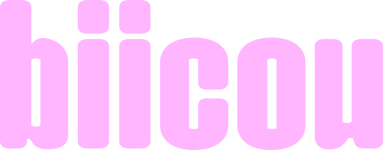
“Green” reflexes to adopt when your child is born
The arrival of a child is an opportunity to embark on a more environmentally friendly consumption cycle! But consuming responsibly will also be better for your baby's health... We'll explain why and give you our best tips for being perfect eco-friendly parents 👇
A healthy and ecological bedroom

Designed and designed by parents while waiting for their little one, this room is very often full of products that are harmful to your health! First, new industrial furniture (made of laminated, melamine or chipboard wood) is synonymous with VOCs (volatile organic compounds). These molecules, which are made up of carbon and hydrogen atoms, are responsible for pollution inside homes. These VOCs should be avoided on a daily basis, particularly because some of them are carcinogenic.
To have a healthy bedroom, nothing could be simpler than equipping this room with second-hand furniture (after a few years of use, VOCs are significantly reduced) or non-industrial furniture.
Next, painting! Choose clean paint with an eco-label to minimize its impact on the environment while having the guarantee of its quality.
Finally, stuffed animals… we often find ourselves with dozens of “soft toys” and there is nothing more useless! Have the reflex to favor quality rather than quantity, by purchasing soft toys made in France.
Baby's diet

In the jungle of small pots and boxes of milk, it is sometimes difficult to find your way. If we can give you some eco-friendly and healthy advice, it is first of all to cook your child's meals yourself, preferably from organic and pesticide-free products, as soon as he begins to diversify his diet (from 4-6 months).
The container is of course just as important as the content. It is important to use BPA and phthalate-free dishes for baby's health and to favor healthy materials such as stainless steel or glass. And for parents who don't have time to cook, you can fall back on small organic glass jars (and therefore recyclable).
As for milk, we recommend that you choose a brand that is certified organic and pesticide-free in pharmacies. In addition, to combat the consumption of plastic water bottles, do not hesitate to ask your town hall if the water in your town is suitable for babies. Indeed, although it is drinkable, tap water can contain too many nitrates or pesticides for an infant. In the case of an old house, some pipes may still be made of lead, which then requires the systematic use of bottled (or boiled) water.
PS: excess milk can be frozen to later cook a puree.
Hygiene products

Just as important as food, products in contact with baby's skin have an impact on the environment and their health.
Restrict ! And yes, there is no point in having a bathroom overflowing with products, the essentials can be counted on the fingers of one hand: a vegetable oil to moisturize your skin, a liniment for your buttocks and a cleansing gel without bath soap, that's all you need. Of course, you will have to check the list of ingredients and choose products without perfume, without coloring, without alcohol, without essential oils and without phenoxyethanol, and preferably organic.
Do It Yourself obviously remains the best way to reduce your impact on the environment (many recipes are available online)!
Another bathroom heresy: diapers! To significantly reduce your environmental impact, opt for reusable diapers. Ecological, economical and healthy, there is no excuse not to adopt them. However, if you cannot take this step, then choose ecological disposable diapers which are more ecological and healthier than conventional diapers.
Another ecological tip to adopt: put an end to wipes! In addition to harming the environment, these are endocrine disruptors and contain allergenic molecules. The washcloth with Marseille soap is just as effective and much better in every way. If you are a DIY fan, you can also make washable squares in organic/eco-friendly materials. With a little liniment, they will be a perfect replacement for your wipes.
Childcare clothing and equipment

Last essential points, first the clothes. They should be limited and bought second hand, or new, but make sure they are ethical and responsible (made in France and with ecological materials).
Finally, ecology also involves childcare: strollers, car seats, changing tables, deckchairs, high chairs, baby carriers, etc. These items have a limited useful life, a strong environmental impact and often end up at the bottom of the car. a closet when they could have a second life. In addition, just like furniture, they come from industry and therefore contain VOCs. It is therefore important to equip yourself second-hand, to choose upgradeable parts (especially for the bed and the stroller), to use rental and loans as much as possible. However, if you are reluctant about certain products, the mattress for example, then choose a new eco-responsible product.
